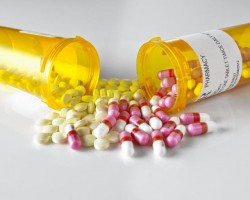Types of Pain Killer Addiction Treatment
Pain killer addiction can pose serious challenges in treatment. Many different methods of pain killer addiction treatment exist to help people who suffer from physical dependence to reclaim their lives and get on the right path to sobriety and long term recovery. For most recovering addicts, the first step in healing is to spend time in a detoxification center and residential treatment setting. Treatment for pain killer addiction can continue in an outpatient treatment center which utilizes continued support and counseling to help the patient get well.
Methods of Treatment
Depending on the severity of the addiction, various methods of treatment may be used to help the individual get well. The most common types of pain killer addiction treatment include:
- Medical detox – although detox is not the whole component of treatment, it is a vital part of the recovery journey. Medical detox provides around-the-clock medical care to help patients overcome withdrawal and physical dependence on painkillers.
- Inpatient treatment – this is the most effective method of treatment for most people who suffer from painkiller addiction. Inpatient treatment focuses on providing consistency in monitoring, support and continued care.
- Outpatient treatment – this method of treatment is ideal for minor addictions or for continued care following time spent in a residential treatment center.
Choosing Expert Help

Pain killer addiction treatment can be your ticket to a successful recovery.
When choosing a method of pain killer addiction treatment that is going to be most effective for you, consider the importance of choosing an expert that understands the addiction thoroughly. Pain killer addiction is very challenging to treat because there is a wide availability of the drug both in stores, pharmacies and on the streets and because people often suffer from legitimate pain that requires treatment too. Treatment professionals who have worked with those suffering from painkiller addiction in the past and who understand the many challenges surrounding this addiction can provide the best insight and hope for recovery.
Medications
Often times, pain killer addiction treatment is best performed under the old, tried and true method of fighting fire with fire. Medications are often used in the treatment of pain killer addiction. The most common medications used to help treat this addiction include:
- Methadone
- Suboxone
- Subutex
- Clonidine
It’s important to talk with a treatment specialist before making the decision to take any medication for the treatment of addiction. As always, there are risks associated with taking any medication even when it is prescribed for a legitimate purpose.
There is Always Hope
Despite how difficult it may be to overcome painkiller addiction, there is always hope in recovery. Treatment centers are focused on first helping the patient to stabilize, then to begin healing physically, emotionally and spiritually from the pain that addiction has caused. In light of it all, pain killer addiction can be treated and what was once a miserable time in your life can become a thing of the past.